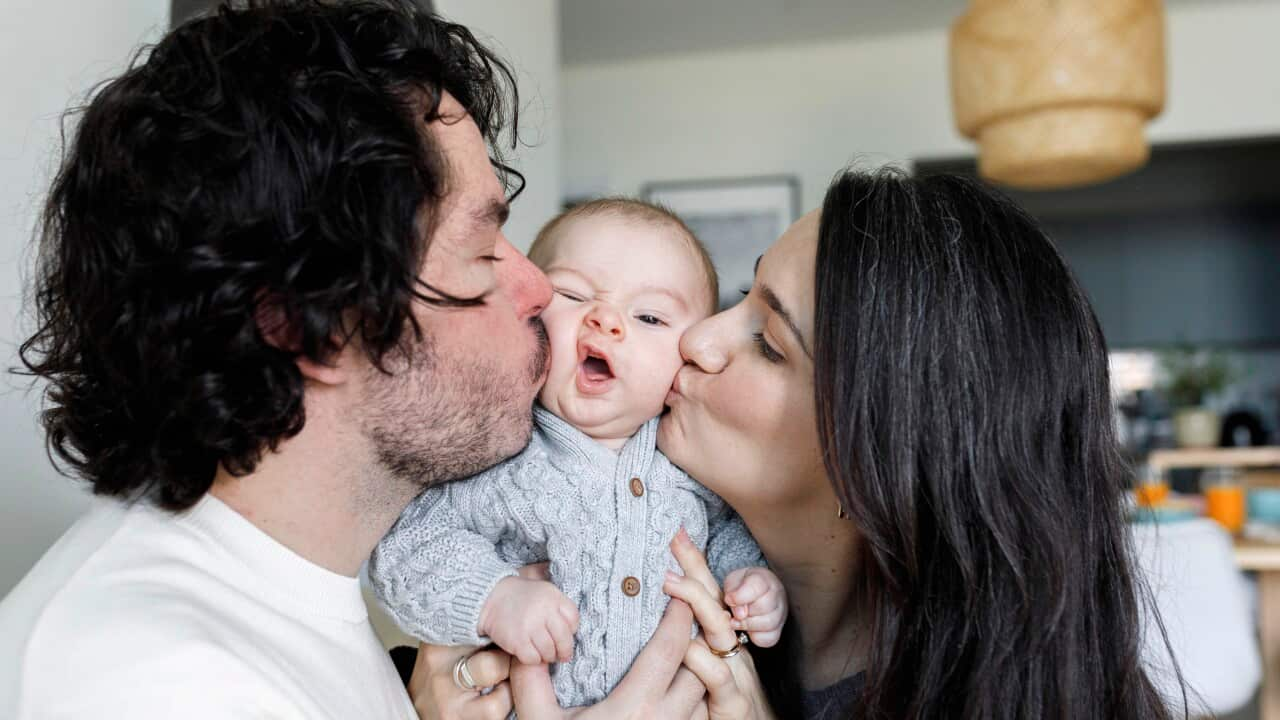Key Points
- COVID-19 continues to pose a threat to Australians: AMA President Steve Robson
- Dr Kerry Chant suggests that employees discuss a health safety plan with employers
- Experts say staying up to date with vaccination remains the best protection against COVID
Sydney resident and mother of three Jenny Choo is unhappy over the National Cabinet's decision to scrap the mandatory isolation period and calls it "wrong."
She worries about her children, who are under five and yet to be eligible for a COVID vaccine.
"My children can catch COVID at childcare from teachers and staff as positive cases are no longer required to isolate," Ms Choo tells SBS.
Australia only allows vaccination in vulnerable children under five, while children over five are eligible for two doses of a COVID-19 vaccine.
COVID remains a significant threat
Australian Medical Association's President Steve Robson says governments and residents must not drop the ball and lose a sense of the pandemic despite a decline in COVID infections, hospitalisations and deaths.
COVID is still a threat to our health, economy and health system
Professor Robson says Australians are at significant risk as immunity from vaccination is wearing off, and another wave is building in the northern hemisphere.
"The message being sent by political leaders is that it (pandemic) is all over, but nothing could be further from the truth," Prof Robson says.
How to avoid COVID infection at work amidst new changes?
Experts say workers should continue to follow the same practices that kept them safe since the pandemic started.
"We all know from experience what works best to protect one another from COVID-19, so please, continue to take those simple but important steps," NSW Chief Health Officer Dr Kerry Chant says.
"We urge people to stay home if they have cold or flu-like symptoms such as a runny nose, sore throat, cough or fever. Get tested," she adds.
Dr Chant says people should talk to their employer about their safe return to the workplace, with the risk to be managed under occupational health and safety frameworks.
States and territories have their own work health and safety laws to manage the risk to the health and safety of employees, visitors, customers and suppliers at a workplace.
While it is an employer's responsibility to provide a safe work environment, employees are obligated to take care of their health and safety and ensure they do not hurt others.
Prof Robson said COVID positive cases need to be mindful of the people they are dealing with.
"If you have symptoms or recently had COVID, make sure you minimise the ways that you can potentially spread the infection to other Australians," he says.
Prof Robson, however, fears the under reporting of cases will make it difficult for healthcare workers to know the true sense of COVID transmission in the community.
How long are you infectious?
The mandatory self-isolation has ended, but the infection period remains unchanged.
Dr Chant says a person can be infectious with COVID for up to 10 days, but they are most infectious in the two days before their symptoms start and until their symptoms last.
She urges people with COVID-19 to wear face masks indoors and on public transport.
They should avoid large gatherings, crowded indoor places and high-risk settings such as hospitals and aged or disability care for at least seven days, Dr Chant adds.
Experts say staying up to date with vaccination remains the best protection against COVID.
What if you are a close contact?
NSW Health advises that close contacts should:
- Monitor for symptoms
- Get tested and stay home if sick
- Avoid high-risk settings such as a hospital, aged or disability care facilities for seven days
- Avoid visiting those at high risk of severe illness
- Wear a mask when indoors and on public transport
- Take frequent RATs
Relief for some
Some residents describe the end of mandatory isolation as a relief for both parents and children.
"No more mental stress and fear. Everyone had an experience living with COVID, irrespective of age and restrictions. Now it is time to go back and live in the present moment," says Sangeetha, a mother of two.
Special education teacher and mother of five Kelly Ford describes the end of the COVID isolation rule as "absolutely fabulous".
"Students have desperately missed being able to access the community to participate in vital life and social skills," she says.
"The plans have been made for a school camp, outdoor sports and lots of exciting excursions. Life is good again!"
Australians worried about returning to work, school or educational facilities amidst changes to COVID rules can reach out for help in their respective states and territories.
ACT — Canberra Health Services Access Mental Health on 1800 629 354
NSW — Mental Health Line on 1800 011 511
NT — Northern Territory Mental Health Line on 1800 682 288
QLD — 1300 MH CALL: Mental health access line on 1300 642 255
SA — Beyond Blue Coronavirus Mental Wellbeing Support Service on 1800 512 348
TAS — Mental Health Service Helpline on 1800 332 388
VIC — Head to Help on 1800 595 212
WA — Mental Health Emergency Response Line on 1300 555 733
SBS is committed to providing all COVID-19 updates to Australia’s multicultural and multilingual communities. Stay safe and stay informed by visiting regularly the






